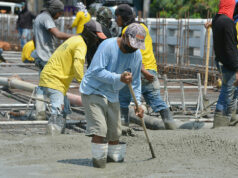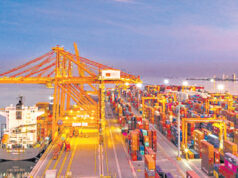Duterte to pursue Code of Conduct with China
By Arjay L. Balinbin Reporter
LEADERS OF THE Association of Southeast Asian Nations (ASEAN) and the People’s Republic of China have targeted to finish by next year the initial review of the Single Draft Negotiating Text of the Code of Conduct (CoC) in the disputed South China Sea that will serve as the basis of future CoC negotiations.
In a common statement delivered by President Rodrigo R. Duterte, as Country Coordinator for ASEAN-China dialogue relations, at a summit in Singapore on Wednesday, both parties said that “by 2019,” they “look forward to the completion of the first reading of the Single Draft CoC Negotiating Text,” which will have to go through at least three readings to create the final CoC.
The ASEAN and China, the President said, will “continue to maintain a conducive environment for future rounds of negotiations of the CoC.”
On economic cooperation, he said: “We also look forward to the full liberalization of the ASEAN-China Air Transport Agreement (AC-ATA), which will not only facilitate greater people-to-people and economic linkages, but also complement MPAC (Master Plan on ASEAN Connectivity) 2025 and China’s initiative to develop a 21st Century Maritime Silk Road.”
Mr. Duterte said the ASEAN-China Strategic Partnership Vision 2030, which provides a strategic roadmap for ASEAN-China cooperation in the next 12 years, was set to be issued as of yesterday.
“It will complement the many ASEAN-China agreements made through the years and the Plan of Action to Implement the Joint Declaration on ASEAN-China Strategic Partnership for Peace and Prosperity (2016-2020). ASEAN-China sectoral bodies and mechanisms shall look into incorporating the Vision 2030 in their work plans,” he said.
Prior to the ASEAN-China Summit, Mr. Duterte said in an ambush interview with reporters, as posted on the official Facebook page of the Presidential Communications Operations Office (PCOO), that he would push for the conclusion of the negotiations on the CoC.
“I am worried and I expressed it last night because we have a defense treaty, mutual defense treaty with the US,” he added.
Because of the treaty, he also said, “I’d like to [tell] China that is why at all cost we must have the CoC. So you’re there, you’re in possession, you occupied it, then tell us what route we shall take and what kind of behavior you want.”
PALAWAN
On a related matter, Presidential Spokesperson & Chief Legal Counsel Salvador S. Panelo defended Mr. Duterte’s decision to prohibit any country from stockpiling weapons in Palawan, saying this move reflects the President’s “acumen and diplomacy” in dealing with the West Philippine Sea issue.
To recall, the President, in his speech in Palawan last Saturday, said that “as a matter of foreign policy,” he “will not allow any country to stockpile any kind of weapon” in the province.
“I’m putting on notice everybody, the United States, China, Australia, ‘yung interesado (everyone that is interested), that the Philippines is not ready for a war. We cannot afford it and we cannot manage it,” he also said.
In his interview with ANC on Wednesday, political risk analyst Anders Corr said this move by the President will leave Palawan militarily vulnerable to the advantage of China.
Sought for comment, Mr. Panelo said in a statement: “The President’s recent decision not to allow any country to stockpile arms and ammunition in Palawan reflects his acumen and diplomacy in dealing with the issue.”
“The President not only steers clear of a potential warfare with China but anticipates any armed conflict between two powerful countries. Palawan, given its proximity to our giant neighbor, could be a flaming collateral damage if not an object of a strategic assault resulting to irreparable repercussions in the island. It is in the best interest of the nation that the President maintains constructive dialogues with China through a bilateral consultation mechanism (BCM),” he added.



